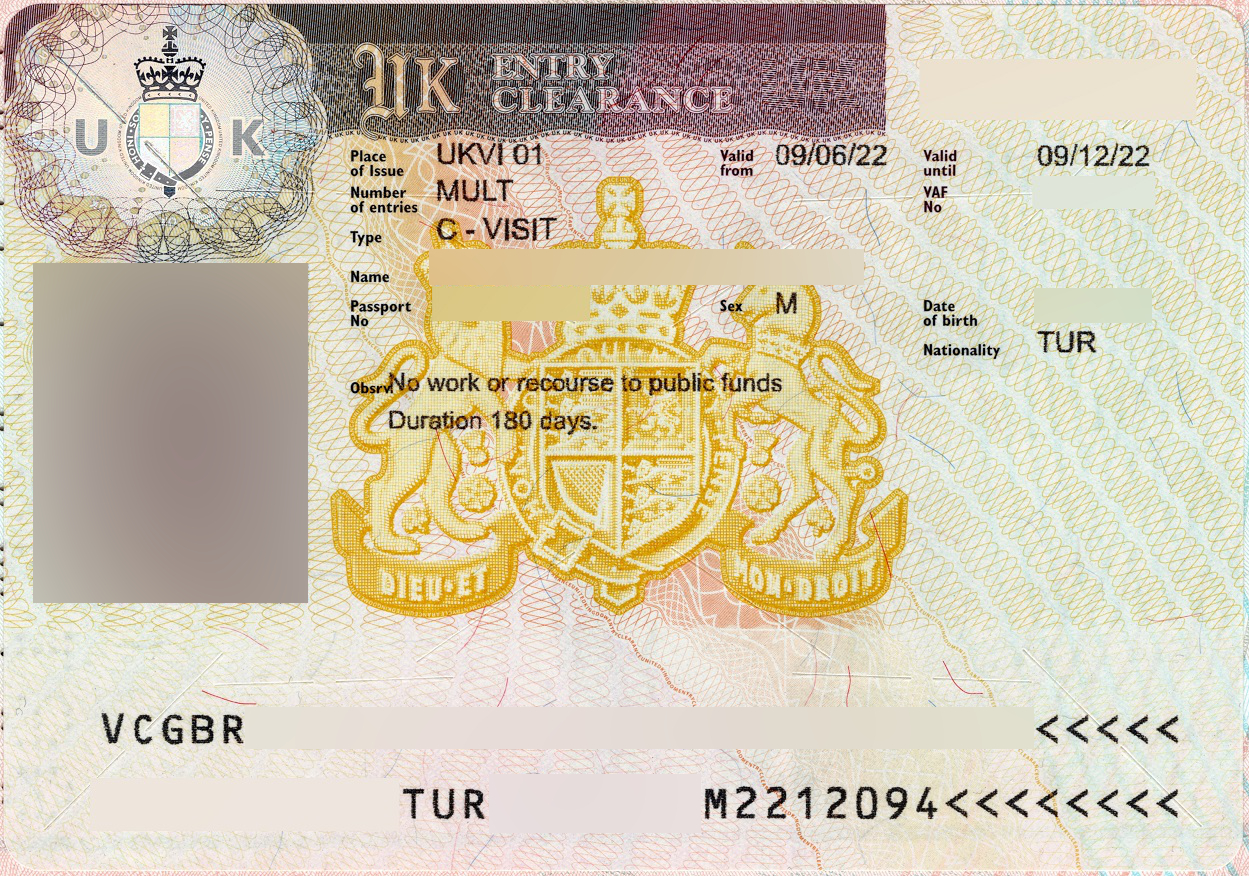Are you considering relocating to the United Kingdom? Whether it be for work, study, or simply a change of scenery, making such a decision can be exciting yet overwhelming. With a myriad of factors to consider, from immigration requirements to healthcare and culture, the process of relocating to the UK can seem like a daunting task. However, fear not! In this comprehensive guide, we will dive into all the essential information you need to know before making the leap across the pond. From understanding the visa process to exploring various regions, we will provide you with the knowledge and resources to ensure a smooth transition and a successful relocation to the UK. So, sit back, relax, and let us guide you through the intricacies of moving to this diverse and culturally rich country.
Visa Requirements: Navigating the UK Immigration System
Exploring the United Kingdom can be an exciting adventure, but before you pack your bags and book your flight, it’s crucial to understand the visa requirements to smoothly navigate the UK immigration system. Depending on your purpose of visit and duration of stay, the UK offers various types of visas tailored to meet diverse needs. Here’s a breakdown of the main categories:
- Tourist Visa (Standard Visitor visa): If you’re planning a short-term visit for tourism, visiting family or friends, or attending events or conferences, this visa type allows you to stay up to six months. However, it’s essential to demonstrate that you have sufficient funds to cover your expenses during the trip and that you’ll be returning to your home country afterward.
- Student Visa (Tier 4 visa): Enrolling in a course or program in the UK? The Tier 4 student visa is likely what you’ll need. To obtain this visa, you must provide evidence of acceptance from a recognized educational institution and prove your ability to support yourself financially.
- Work Visa (Tier 2 General visa): If you’ve secured a job offer in the UK from a licensed sponsor, the Tier 2 General visa permits you to work for up to five years. The sponsorship and sponsorship certificate play a crucial role in this application, so ensure you have all the necessary documentation prepared.
Note that these are just a few examples among a range of visa options available. Additionally, the UK immigration system is subject to regulations and policies that are regularly updated, so it’s advised to consult official government sources or seek professional assistance to ensure accurate and up-to-date information for your specific circumstances.

Finding Accommodation: Exploring Housing Options in the UK
When it comes to finding accommodation in the UK, there is a wide range of housing options to consider. Whether you’re a student, a young professional, or a family, the UK has something to offer for everyone’s needs and preferences. Let’s explore some of the popular housing options available:
1. Rental Properties
Renting a property is a common choice for those looking for flexibility and convenience. There are various types of rental options available, including apartments, houses, and shared accommodations. Most rentals come either furnished or unfurnished, so think about your budget and lifestyle when making a decision. Websites and online platforms such as Zoopla, Rightmove, and SpareRoom are great resources to search for rental properties in your desired location.
2. University Accommodation
If you’re a student, many universities offer on-campus or off-campus accommodation specifically tailored to students. On-campus accommodations, such as dormitories or halls of residence, provide a vibrant atmosphere with numerous facilities and easy access to campus resources. Alternatively, off-campus accommodation can provide more independence and the opportunity to live in a diverse neighborhood. Check with your university’s housing office for more information on the available options.
3. Buying a Property
If you’re looking for a long-term investment or a place to call your own, buying a property in the UK could be a viable option. From cozy apartments in bustling cities to charming cottages in picturesque countryside locations, the UK offers a variety of housing styles to suit various preferences. Consider your budget, location requirements, and seek guidance from a reliable real estate agent to navigate the buying process effectively.
Overall, finding the right accommodation in the UK involves considering various housing options and factors such as location, budget, and personal preferences. Take your time to research, explore different alternatives, and weigh the pros and cons before making a decision. Remember, finding your dream home is an exciting journey, and with the plethora of choices available, there’s something special waiting for everyone in the vibrant housing market of the UK.

Healthcare Services: Understanding the National Health Service (NHS)
The National Health Service (NHS) is a comprehensive healthcare system that provides medical services to the residents of the United Kingdom. Established in 1948, it is one of the largest and oldest healthcare systems in the world. Understanding the NHS is essential for both UK citizens and visitors to ensure you receive the best possible healthcare when needed.
Here are some key points to help you better grasp the functioning of the NHS:
- NHS Funding: The NHS is primarily funded through general taxation, meaning that healthcare services are available to all residents regardless of their ability to pay. This widely accessible service ensures the right to essential medical care for all UK residents.
- NHS Services: The NHS covers a broad range of medical services including preventive care, diagnosis, treatment, and emergency care. From a simple doctor’s appointment to advanced surgical procedures, the NHS provides comprehensive healthcare across various specializations.
- NHS General Practitioners (GPs): Registered patients can consult with a general practitioner (GP) as their primary point of contact within the NHS. GPs provide initial assessments, refer patients to specialists, prescribe medications, and coordinate additional care as required.
- NHS Waiting Times: Due to the high demand for NHS services, it is necessary to prioritize patients based on the severity of their condition. This might result in waiting times for certain non-urgent treatments or specialist consultations. Urgent cases are always prioritized to ensure prompt medical attention.
With its dedication to ensuring equitable access to healthcare, the NHS remains a cornerstone of the UK society. Familiarizing yourself with its fundamental aspects will enable you to navigate the system effectively and make the most of the valuable healthcare services it offers.

Education System: Choosing the Right School for Your Children
Choosing the Right School for Your Children
When it comes to your child’s education, finding the right school is of utmost importance. With so many options available, it can be overwhelming to make a decision. However, by considering a few key factors, you can ensure that you choose a school that aligns with your child’s needs and values.
1. Academic Programs:
Begin by assessing the academic programs offered by different schools. Look for a curriculum that challenges and engages your child, while also providing a well-rounded education. Consider if the school offers advanced placement or gifted programs, as well as extracurricular activities to enhance their learning experience.
2. Learning Environment:
Each child has unique learning styles and preferences. Consider if the school’s teaching methods, such as project-based learning or traditional classroom instruction, are a good fit for your child. Additionally, visit the schools and observe the atmosphere. Is it nurturing, inclusive, and supportive? An environment where your child feels comfortable and encouraged will contribute to their overall educational success.
3. Facilities and Resources:
Assess the physical facilities and resources available at each school. Look for well-equipped classrooms, libraries, and laboratories that foster a conducive learning environment. Check if the school provides access to modern technology and resources that will aid in your child’s education, such as computers, science equipment, and art supplies.
By carefully considering these factors, you can confidently choose the right school for your children. Remember, every child is unique, so it’s essential to find a school that recognizes and caters to their individual needs. Ultimately, investing time and effort into making an informed decision will set your child on a path to lifelong learning and success.

Transportation: Getting Around Efficiently in the UK
When it comes to navigating the United Kingdom, there are several efficient transportation options for both residents and visitors alike. Whether you need to travel within bustling cities or explore the charming countryside, the UK has a well-connected and reliable transport system to suit your needs.
1. Public Transportation: The UK boasts an extensive network of trains, buses, and trams that offer a convenient way to get around. The National Rail service connects major cities and towns, providing quick and comfortable journeys. Be sure to check for discounted fare options such as railcards, which can save you money on your travels. Buses are another popular mode of transport, especially for shorter distances and rural areas. London, in particular, has an excellent underground (Tube) system, allowing for hassle-free travel within the capital.
2. Taxis and Ridesharing: Taxis are widely available in UK cities and towns, and can be hailed on the street or booked in advance. Licensed black cabs are a symbol of London, known for their iconic design and knowledgeable drivers. Ridesharing services like Uber are also prevalent in larger cities, offering a convenient and often cost-effective alternative.
3. Cycling and Walking: For those seeking a more environmentally friendly and active way to explore, cycling and walking are popular options in the UK. Many cities and towns have dedicated cycling lanes and bike-sharing programs, allowing you to easily rent a bicycle for a day. Walking is also a pleasant and practical mode of transportation, especially in historic areas where cars may be restricted. Additionally, taking a leisurely stroll through picturesque countryside or along coastal paths can be an excellent way to experience the natural beauty the UK has to offer.
In conclusion, the UK provides a range of efficient transportation options, making it easy for both residents and visitors to move around the country swiftly and comfortably. With a well-connected public transport system, reliable taxi services, and opportunities to cycle or walk, exploring the UK has never been more convenient.

Cultural Adaptation: Tips for Settling In and Embracing British Customs
Are you a newcomer to the vibrant and diverse British culture? Settling into a new country can be both exciting and challenging. To help you navigate the waters of cultural adaptation, we’ve put together some valuable tips to help you embrace British customs and truly immerse yourself in this fascinating society.
1. Tea Time Tradition
When in Britain, embracing the sacred tradition of afternoon tea is a must. Join the locals in a cozy café or at home and indulge in a cuppa with some biscuits or scones. Remember, the proper British way is to add milk to your tea after pouring, and don’t forget to extend your pinky finger just slightly as you hold your teacup.
2. Polite Conversations
British people are known for their politeness and love of small talk. Engaging in polite conversation with locals is a fantastic way to adapt to British culture. Remember to adopt a friendly and courteous demeanor and make frequent use of common pleasantries such as saying “please,” “thank you,” and “excuse me.” After all, a little politeness can go a long way in forging new connections and friendships.
3. Navigating Queues
Queuing is a quintessential part of British life, and mastering the art of queuing is vital for your cultural adaptation. Whether you’re waiting in line for a bus, at a supermarket checkout, or even for a cup of coffee, be prepared to join the queue and wait patiently for your turn. Avoid cutting in line or pushing ahead as this is considered extremely rude in British culture.
By following these tips, you’ll be well on your way to settling in and embracing the customs of your new British home. Remember, cultural adaptation is an ongoing process, so be open-minded, eager to learn, and respectful of the unique traditions that make Britain so remarkable.
In Conclusion
In conclusion, relocating to the UK can be an exciting and fulfilling journey. This comprehensive guide has aimed to provide you with a wealth of information, insights, and practical tips to facilitate your move. From understanding the immigration processes, finding suitable accommodation, navigating the healthcare system, and adjusting to the cultural nuances, we hope this guide has equipped you with the knowledge needed to embark on your new adventure.
While the UK offers a multitude of opportunities, it is important to approach relocation with careful planning and preparation. By familiarizing yourself with the visa requirements or potential job prospects, you can make informed decisions that will ensure a smooth transition. Moreover, staying up-to-date with the latest immigration policies and laws will help alleviate any uncertainties related to your move.
Remember, adjusting to a new country takes time and patience. The UK’s diverse culture, history, and vibrant cities offer an array of experiences that will enrich your life. Exploring the picturesque landscapes, enjoying the culinary delights, and immersing yourself in the numerous cultural activities will undoubtedly make your relocation worthwhile.
Lastly, it is crucial to build a support network. Whether through joining local community groups, engaging in social activities, or connecting with fellow expats, having people to lean on during the transition can greatly ease any challenges you may encounter.
Relocating to the UK may be a daunting task, but armed with the guidance provided in this comprehensive guide, you are better equipped to navigate the process and make the most of your new life. Good luck on this exciting journey, and may your relocation be filled with success, happiness, and memorable experiences in the United Kingdom.





